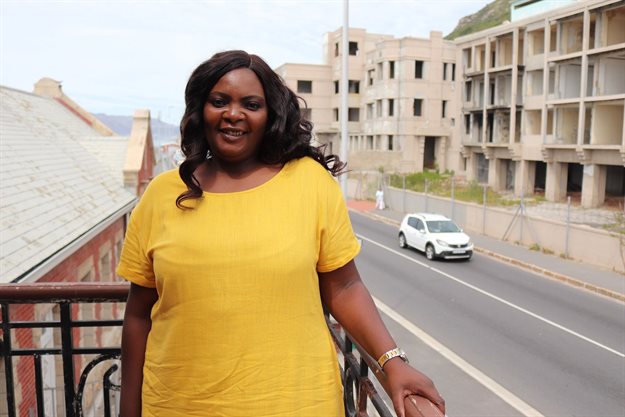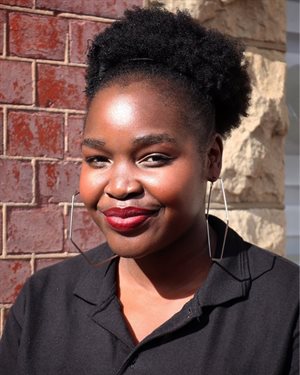
Related
Top stories






More news


Marketing & Media
Ads are coming to AI. Does that really have to be such a bad thing?














Activate Change Drivers CEO Siphelele Chirwa introduced the session by stating that she felt it was not enough to only celebrate women when they achieved positions of leadership. “We clap when women achieve leadership positions, but forget the thousands of women who deserve to be in leadership positions and are not there. How do we sustain that momentum when Women’s Month is over? There is something within the system that is not shifting, despite the legislation.”
Women in business or as political leaders are often celebrated as “rare gems”, said Chirwa, which didn’t recognise the efforts of many other women in society aspiring to leadership roles or leading in their communities in varying ways. “We are not a rare commodity. There are many of us, we need to be given the platforms to lead. There are so many young women who are pushing; just surviving one day to the next. There are thousands of women leaders out there - give them a chance. I don’t want to be the only one wearing a cape, there are many of us.”
Ntsikayam Maweni, a final year student at Rhodes University, and a partner at Enable, an NGO which brings about inclusivity surrounding disability, pointed out that when women found themselves in spaces of leadership, they were not always seen as part of the leadership. “We find ourselves having to negotiate with the patriarchy that exists in that space. We are seen as taking over an administrative space or secretarial space. As much as we would like to say we have evolved in the 21st century, we are still overlooked. When we look at the apartheid space, we only look at the role women played on Women’s Day, 9 August, but not about the important role that women played in the liberation struggle and in between. We need to tell those stories too.”

Publisher Kay-Dee Mashile said South Africa needed to move to a point where women were recognised as leaders and not just celebrated on one day or one month of the year. “We need to move to a point where we recognise that women are leading. Women are bosses. We are at that place, but we need to showcase that, so that other people can see they are not the only ones.”
Mashile believes South African society needs to stop having one-dimensional conversations about women in terms of being wives of leaders or in a negative way, pulling each other down. “There should be a lot more conscious effort made to ensure women get into leadership positions. Women are judged on competence and men are judged on gender. Women have to stand out ten times more than men. Women have done great things. We need to start creating great spaces.”
Activist and student Elaine Scott said young women needed to go out into the world and find the area of impact where they can go and make a difference. “If we can all do that for young women coming after us: clap for them, let them know we ‘see them’. We are not ‘once-in-a-while people’ who serve in between the male appointments.”
Nomalanga Tshuma, founder and organiser of Define a Girl, and an advocate for women and children, said women needed to reverse the negativity of women “pulling each other down”, to a “pull-me-up” syndrome. “There may be someone looking up to you – pull them up instead. Let’s focus on that. We need to look at change strategy – what are you doing within your spaces to change things? I don’t have a problem being the person who represents. But I also don’t mind being the one who brings along her five sisters from her community. I believe in representation. I’m not standing alone,” she emphasised.
Mashile is worried that funding does not get channelled to women entrepreneurs as easily as it does for male entrepreneurs: “There isn’t a conscious effort to improve entrepreneurship for women. Society is more receptive to male entrepreneurship. The pandemic has made that so obvious to me. Women are expected to fail, and we are seen as just working for a hobby. It has become a lot more apparent to me that women in entrepreneurship are not respected and taken as seriously as men are.”
Scott believes that young women in particular need to call out men more on their sexist behaviour. “The conversation we should be having is a conversation about how we barely call out patriarchy and comments that seek to victimise women. We need to inform and educate everyone who would bring down another woman – to call out nonsense when we see it.
“That is the conversation we should be having. It promotes patriarchy in our society if we stay quiet. We need to start dismantling that toxic masculinity. It is time for men to recognise the privilege they have. We need to coexist as human beings,” added Scott. Tshuma agreed, saying many women are mere bystanders. “We need to speak out about how to bring them into the conversation as well. We can speak about being united, but with regards to gender-based violence, they often aren’t part of the conversation.”
Mashile added that women did need the support of men in fighting against violence against women: “Men do have a role to play. If men stop killing women, there would be no femicide. Men have to be there. They have to listen and act right.”
In conclusion, Tshuma said it was so important for young women to understand how strong and capable they were. “Even when we are almost at our breaking point, we can do the work we need to be doing. We need to encourage as many other young women as we can. It goes back to collaboration. That is how we will see a change in all the spaces we need to see changes in, as women.”